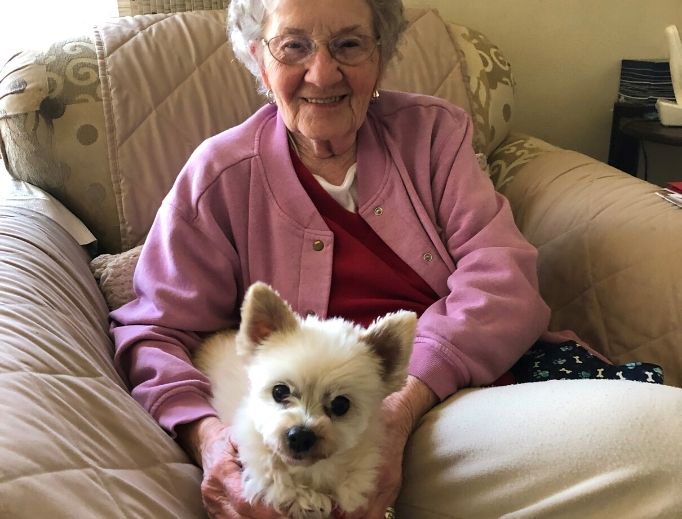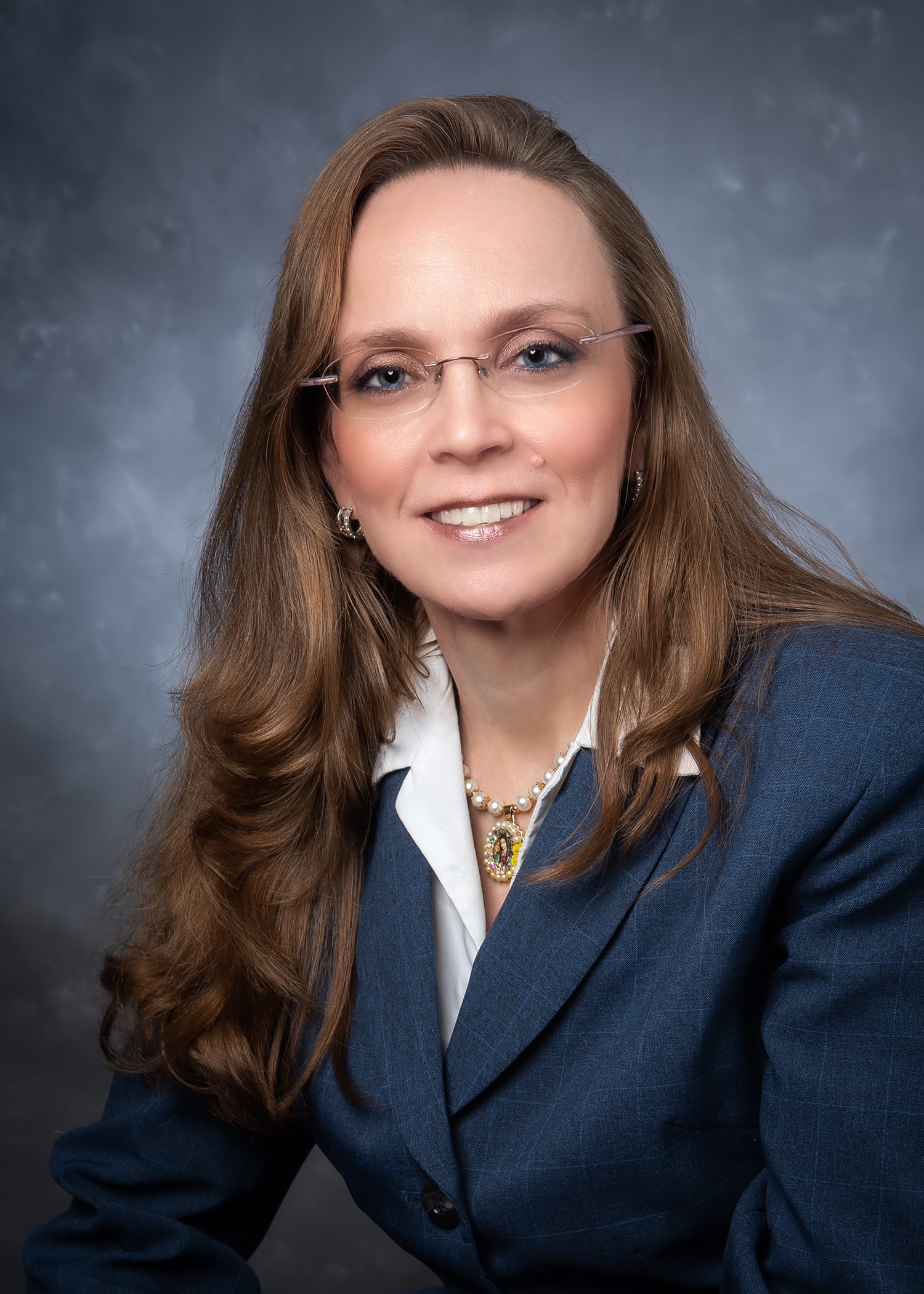COVID’s ‘Isolation Epidemic’: Elderly at Risk as Things Open Up
Despite social distancing, many elders have a good perspective of the situation, relying on faith, family and friends.

“I don’t go gallivanting anymore,” John Rainy of Dearborn Heights, Michigan, told the Register. The 88-year-old widower, originally from Scotland, misses his freedom that disappeared overnight due to the coronavirus. Before everything shut down, Rainy’s typical day began with morning Mass and errands that were also a social time. He is in good health and still drives, but his son David, who lives with him, helps with gardening and housework. He stopped seeing his other three children and grandchildren since COVID-19, and his daily Mass now comes from EWTN on TV.
Rainy is among the older generation that is part of an isolation epidemic that can harm both emotional and physical health. COVID-19 has exacerbated that situation. One of the underlying risk factors that can worsen the coronavirus and even cause death is age. For that reason, despite businesses and churches opening up, the elderly are cautious about going back out.
The irony is that isolation can lead to loneliness and depression, thereby weakening the immune system. It is a conundrum, given that the measures that prevent contagion can increase these other risk factors. A key issue, however, is the difference between social isolation and feelings of loneliness. Studies indicate that it is the actual feeling of loneliness and not time alone that leads to cognitive decline in seniors, including hastening the
the potential progression of Alzheimer’s disease and stroke and premature death. Even symptoms from the common cold are reported as more severe among people who feel lonely.
Disposition Important
Emotional well-being is key. With that prognosis, Rainy is doing well. But even as things start to open up, given his age and his children’s protectiveness of him, he has still not been going out. “My daughter Monica is running some of my errands and does not want me going out,” he said, adding with a laugh, “I just tell her that she is getting back at me because I used to ground her, and now she’s grounding me.”
Part of his upbeat spirit is a matter of perspective. At age 11 in Scotland, during World War II, he and his six siblings were often awakened by air-raid sirens and rushed to their backyard shelter. “In the morning, when we all went to school, my mother used to ask, ‘Do you have your gas mask?’”
The virus is nothing for people who lived through that, according to Rainy.
He also attributes his light-heartedness to a strong faith. “I’m one who is happy all the time,” he said. “God keeps me busy, although it does not take much to keep you busy when you are 88. Give me a good book, and I’m satisfied very easily.”
While disposition is important, months of isolation can challenge anyone. Among seniors, many are not connected to the internet and struggle physically and emotionally in many ways. Several seniors declined being interviewed for this article. One man, who lives alone but goes to church to pray every day while wearing a mask, had expressed that he feels very isolated but did not want to share that publicly.
Mike Connelly, a traveling certified nursing assistant to rural towns outside of Bismarck, North Dakota, explained that one woman he knows is living alone on a farmstead while her husband is in a nursing home, unable to receive visitors. She declined being interviewed, but chores, phone calls, prayer and the Bible occupy her time.
“A big fear is the fact that one may pass and the other [person] would not have been able to spend some of those intimate moments of prayer and time together,” Connelly said. “They have overcome a lifetime of hardships, but now, such isolation at such a time in their lives is a great suffering.”
Loss of Support
Dr. Lisa Honkanen, a geriatrician in East Northport, New York, and director of the Office of Human Life, Family and Bioethics for the Diocese of Rockville Centre, New York, still sees patients. The effects of isolation from COVID-19 has had varying effects on the elderly, depending on cognitive abilities and disposition, according to Honkanen. “Many are somewhat bewildered by a situation that is unlike anything they have experienced in their lifetimes,” she said. “This can cause some discouragement.”
For those more cognitively impaired, the reasons behind an upheaval in routines may not be understood, Honkanen explained. “This can cause a more exaggerated distress response, with some growing despondent and more withdrawn because they are suddenly missing regular contact with family, friends and other caregivers. Like everyone else, they also are grieving the loss of loved ones, sometimes forced to seek comfort and consolation with family through a windowpane.”
It is especially a tremendous suffering, she said, when restrictions prevent a priest from making a sick call or family members from being present to advocate for them.
Offering Support
Father Matthew Hood, associate pastor of Divine Child Catholic Church in Dearborn, Michigan, came up with the New Porch Ministry to help relieve some of the stress for seniors. Volunteers are matched with homebound senior parishioners to run errands and deliver groceries. When the program was initially announced, the lack of response brought forth the realization that seniors are not very connected to social media or email. So volunteers called around 600 seniors. “It was an opportunity to reach out to seniors in our community, for them to have a voice to talk to or just a listening ear,” Father Hood said. “It was not about getting through a call list.” Seniors were asked if they had any intentions to pass onto their prayer team, and every call ended with a prayer. Most expressed great appreciation for the call, and 17 accepted the services.
“One parishioner didn’t even have a phone,” Father Hood said. “We knew about her because she had left a note for us along with her offertory envelope. She was surprised when someone showed up at her house to let her know: ‘We are thinking about you and care about you.’”
More than $5,000 has been donated to help those also in financial need, and local restaurants with ties to the parish — such as Antonio’s restaurant and Szegedi’s catering — have donated $1,000 in gift cards. “Our goal was to make it something personal, not just about getting supplies to people,” Father Hood said. “Pope Francis said the Church is not just an NGO; we are about encountering people and bringing Christ to people in need.”
Serge Danielson-Francois, a teacher at Divine Child’s high school, is one of the volunteers who has been dropping groceries off at a fellow parishioner’s house who declined to be interviewed. “He always says, ‘Thank you very much,’ and I tell him I’m happy to do it,” Danielson-Francois said. “This is an extension of the Church. It is the stuff of Matthew 25: ‘I was hungry and you gave me to eat, I was thirsty and you gave me something to drink …’”
How Some Seniors Are Coping
Eighty-five-year-old Shirley Dart has been a widow for 17 years. A son lives with her in Evansville, Indiana, and helps with her care. “I miss seeing my grandchildren and great-grandbabies,” she said. “Debbie [a daughter] came over once with a mask and brought me crossword puzzles; and another daughter, Peggy, left a Mother’s Day gift through the door and baked me a cherry cheesecake.”
Overall, Dart said she’s been fine and fills her days with God, but now that things are opening up, she is determined to get out of the house. “I’m sure I’m going to hear about it from Debbie, but I’m going to the grocery store,” Dart told the Register. “I’ll wear my mask, though.” She is looking forward to their first family get-together since COVID shut things down. They will celebrate Easter, birthdays and Mother’s Day all at once, but they will all be wearing masks.
Doris Fischer, 87, of Bismarck, is a retired nurse. Her two sons and grandchildren have been calling instead of coming by for their regular weekly visits. A neighbor and friend, Jennifer Bender, has gone from helping out a little to taking care of things like haircuts, cleaning house and getting groceries and prescriptions. For Bender, who also cares for a sister who had a kidney transplant, it means her husband and their three sons who are distance learning for high school and college, have limited their social contacts so as not to be a source of contagion.

Retired nurse Doris Fischer, 87, of Bismarck, North Dakota, says she has adjusted fairly well, given support of family and friends.
“I used to go out to lunch with friends,” Fischer said. “I still have contact with them, but just on the phone now.”
It was hard at first, as she kept crossing things off her calendar, but she said she has adjusted fairly well. “My sons look out for me, and I know there’s going to be an end to this,” she said. “And I am very, very happy that I have Jennifer in my life. I don’t know what I would do without her.”
Jane Beauclair, who just turned 79, belongs to the same parish as Fischer, Cathedral of the Holy Spirit in Bismarck. Before the pandemic, the retired teacher began each day swimming before 8am Mass and then tutored children in reading at a nearby school. She returned to daily Mass in early May but wears a mask. She still watches it on TV on Sundays to avoid the larger gathering. Beauclair misses seeing her two daughters and grandchildren but was able to meet her new great-grandson outside, from a distance, for a very brief visit. Her daughters take turns calling her every other day.
“I was born in ’41 and have never seen anything like this in my generation,” she said. “My faith helps me through. I’m glad it’s spring now so I can take walks in the fresh air with the birds and green grass to help with a positive attitude.”
Anne Murphy, widowed since 1977, lives alone in an apartment on Long Island. The 88-year-old founded the National Night of Prayer for Life (on Dec. 8 across the country from 9pm to 1am), 30 years ago as well as locally holding a monthly, nine-hour overnight adoration vigil for life that begins and ends with Mass. She has missed only six months since the devotion began 40 years ago.
“God is very good to me,” she said. “I’m not one of those people who are starving. My children live nearby and make sure I have everything I need. A friend comes to take me for a walk, but, otherwise, I’m locked in the house.” She admits it has not been easy. “I’m a very social person,” she said. “It’s terribly lonesome. I want to see the kids. I have half a dozen things wrong with me, so I am in the high-risk category.”
Murphy said that the hardest thing for her is being unable to receive the Blessed Sacrament. “I miss it so bad,” she said. “I love Jesus so much, and I want people to adore him. I have not received Communion in over two months, and it’s heartbreaking.”
Patti Armstrong writes from North Dakota.
This story was updated after posting.
Suggestions From Dr. Lisa Honkanen

- Pray the Rosary, our greatest weapon in times like this. Many families are setting up “Zoom Rosaries” whereby they can pray together and see each other’s faces, yet still be remotely located.
- Watch Mass on TV with family; even if you cannot do it physically together, you can “attend” the same Mass on TV by tuning in at the same time.
- Remember this is more correctly called “physical distancing” — in fact, we should strengthen our social ties in every way possible without putting others at risk.
- Don’t watch too much TV — limit the news, but also extended lounging. Take a walk if you can or exercise inside.
- Call older family members frequently; use video technology, if possible.
- Send a care package with their favorite goods; include sanitizers, paper towels and other items that are harder to get these days. Make sure that they have the staples they need; if not, be creative and find a way by soliciting help, if necessary. Catholic Charities is one among many organizations that can help if you are unable to fill this need yourself.
- Make sure the homebound are getting all their medicines, as some pharmacies have had supply issues.
- Make plans for a celebration when the stay-at-home orders end so there is something positive to anticipate.
- For anyone who is suffering severe depression and has suicidal thoughts, please get help immediately.
— Patti Armstrong
- Keywords:
- coronavirus
- elderly
- patti armstrong
- social distancing

















